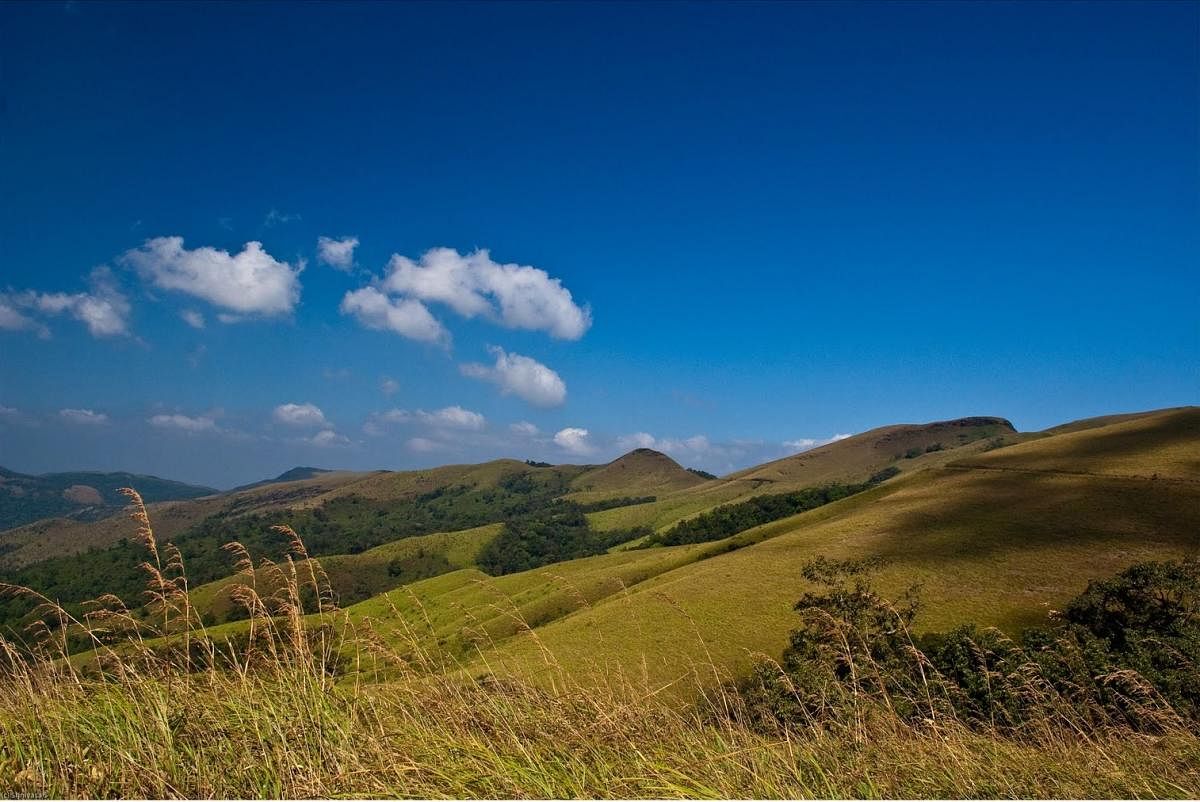
A trip to a hill station is what most of us, city dwellers, look forward to. Away from the hustle and bustle of city life, hill stations are what dreams are made of. If God created the world in a hurry, he took some time to design the hill stations, for he realised they would serve as mini-heavens on earth to give us that much-needed respite every now and then. Kemmangundi is one such destination. In fact, with its pleasant climate, tranquil atmosphere, and the many beautiful sights of the hills close by, it sure is the queen of hill stations in Karnataka.
Away from all
Located in the scenic district of Chikkamagaluru that is renowned for its green mountains, lush coffee plantations, crystal-clear streams and teeming wildlife, Kemmangundi is, thankfully, not as frequently visited by travellers as Ooty or Kodaikanal. And, that is its best part. It’s almost like a hidden gem. Sitting snugly at almost 1,434 m above sea level in the Baba Budan Giri ranges, it offers breathtaking views in every direction. Ideal for a quiet holiday as the place has nothing but a well-tended garden, rest houses and a canteen. Walking amidst the lush garden, admiring the many species of plants and flowers, you can lose yourself without a care in the world. Such is its charm.
No wonder, it was the favoured summer retreat of Sri Krishna Rajendra Wodeyar IV, the erstwhile king of Mysore. This tiny little green gem, which was earlier known as Tigada village, came to be known as K R Hill Station after it found favour with Sri Krishna Rajendra Wodeyar IV, who later donated it to the Government of Karnataka, as a result of which the horticultural department of Karnataka now develops and maintains the place.
In the later years, the rich iron ore deposits here were discovered, mined and transported by a ropeway to the base, en route to the iron & steel plant at Bhadravathi. Once the iron ore deposits got exhausted, and the ropeway stopped, the huge pile of residual red soil gave this place the name Kemmangundi, where kemmannu literally means red soil, and gundi means pit.
Once we reached Kemmangundi, we checked into the guest house allotted to us and took some well-needed rest. After all, the journey to the place had not been smooth, considering the numerous curves through the ghats to reach the top. After a hot cup of freshly brewed coffee, we were all set to walk up to the ‘sunset point’ to catch the sun bid us all goodbye for the day. As we walked up the path, we just couldn’t help but exclaim at nature’s unspeakable beauty. Choosing a nice spot to park ourselves, we sat down and watched the sky change its colours from red to orange to pink. We lost track of time engaged in a silent commune with nature. As darkness slowly descended, and the chill in the air nudged us to move on, we walked back to our guest house. With the place free from noise and pollution, and the atmosphere tranquil, we had the best sleep of our lives that night post a good dinner and a warm chat with the meti (cook and caretaker).
Early the next morning, we trekked up to Z Point, also known as Horse Path, a high point on a steep hill. The climb on the z-shaped path took us nearly 40 minutes. Huffing and puffing, we reached the spot and our jaws literally dropped. Everywhere we looked, we only saw nature in all its splendour. The lush green cover of the surroundings, the onrush of scenery, the many streams trickling down the hills around, the magnificent view of the sky which almost seemed within reach… the experience was, to say the least, awesome. It also made us feel small, really small, in the face of nature. Our trek back to our guest house was, once again, quiet but invigorating.
Flower power
It was now time to explore the Rose Garden with its multi-coloured roses and beautiful ferns. And of course, the Glass House, with its array of exotic plants, orchids and rare flowers. The children’s play area was well-maintained, too. There was a pergola and a watchtower to bide time leisurely. After strolling around a bit, all that we did was to identify a quiet place to sit and enjoy the breathtaking scenery around. With the sound of the wind gently rustling through the trees, and the birds sweetly chirping, it was idyllic.
After a good lunch, we once again set off to the Rock Garden nearby, with its many artistic boulders and statues of wild animals. A walk of another kilometre led us to Shanti Falls, also called Gowri Falls. Very close to Kemmangundi, at just 8 km away, is Hebbe Falls, which should not be missed at any cost. Private vehicles were allowed only up to a point, after which jeeps had to be hired that took us very close to the breathtaking falls. If time is on your side, trekking up the rugged terrain would be fun, too. Gently cascading down in two stages — Chikka Hebbe and Dodda Hebbe — the 450-feet-tall falls left us speechless. Standing near the falls, feeling the sprinkling of water on our faces, we silently thanked the creator for nature’s bounty.
After our brief stay in Kemmangundi with its cool climate and scenic splendour, we headed back to Bengaluru, reminiscing the rejuvenating experience we just had.